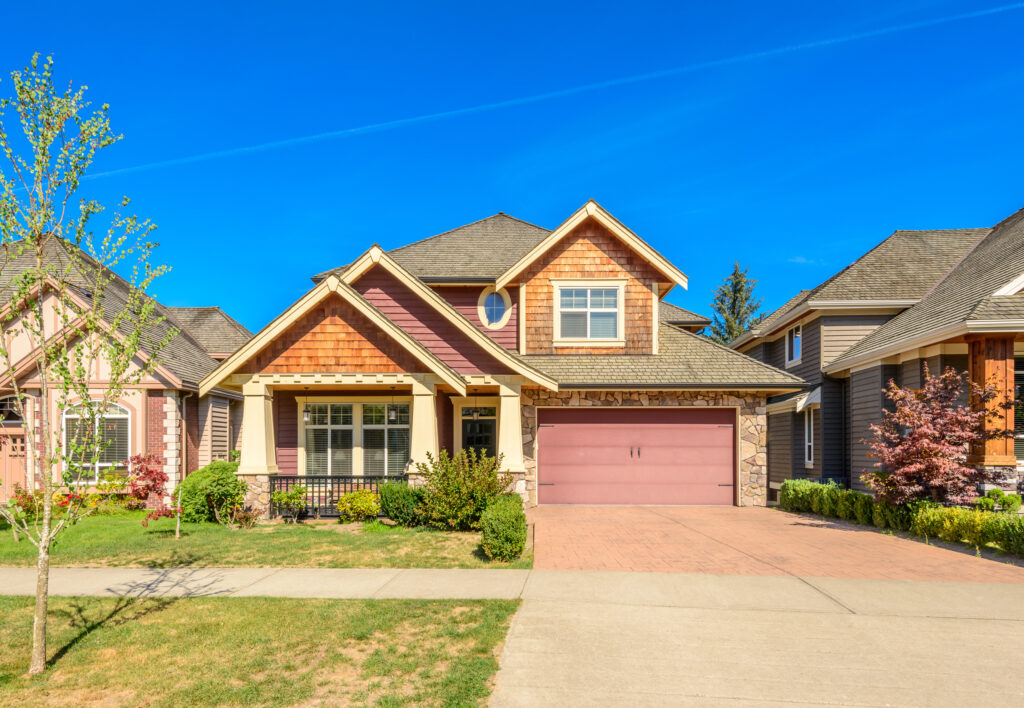Washington Adult Care Homes: How to pay for, Laws and Regulations and Questions to ask…
Washington is one of the safest places to live in the country. The weather, although rainy, is mostly temperate throughout the year, especially towards the western side of the state. There are a vast array of communities and neighborhoods to fit the desires and needs of any senior looking for a new home. Washington State is known for snow-capped volcanic mountains, multiple national parks and for its agricultural prowess. More than 1 million of the 7+ million residents of Washington are 65 years or older, and it is likely some of our aging adult population may require care at some point. Often, when people think of senior care they immediately think of nursing homes. However, there are several other options for types of senior care and housing aside from a nursing home. An adult care home may be ideal for a senior who can no longer manage their health and safety in their own home, and may need care. Adult care homes are an excellent housing option for aging adults because they offer private residencies in a home-like environment.
Washington State has several cities across the state which offer excellent healthcare services for seniors: Seattle, Olympia, Tacoma, Spokane, among others.

Washington adult care homes defined
Adult Care Home or Family Care Home
Adult family care homes are private residences that provide a home-like setting, and in Washington, typically care for up to 6 residents. The care home provider will typically provide meals, housekeeping, and limited activities. Unlike a nursing home, residents may require very light assistance with ADLs. If a resident requires much more care and services, a nursing home is probably a better situation for their needs. Caregivers at an adult care home may perform several functions: personal hygiene and mobility and eating and dressing and toileting and behavior management.

Definitions and other terms in Washington
Adult family care homes are found in normal residential neighborhoods. You may drive past an adult care home each day on your commute. As you look for adult care homes in your community, it is good to know the other terms/names you may hear:
- Adult family home
- Board and care home
- Adult foster home
- Nursing Home (although this is an outdated and not an accurate term for this level of care)
Licensing and regulations for adult family care homes in Washington
Washington’s Department of Health and Human Services oversees the Aging and Long-term Support Administration. The Residential Care Services division regulates licensing and certification for adult care homes.
Staffing
Administrators must possess the education, training and experience as outlined in the Assisted Living Facilities Regulations. In addition, all staff must complete an orientation and safety program. All staff must undergo a criminal state background check as well as a federal fingerprint background check.
Grievances
All employees are mandatory reporters and required by state law to report any suspected abuse , neglect or abandonment.
Washington has two methods for reporting elder abuse:
- The conflict resolution hotline of the DHSH. This hotline is for all seniors who live in residential care homes.
- Secondly, you can reach local adult protective services.
Caregivers in adult care homes may assist with activities of daily living and care needs
- Personal care
- Housekeeping
- Activities
- Group meals
- Mobility
- Behavior management
- Eating
- Dressing
- Toileting
- Personal hygiene
- Cognitive support and redirection

The cost of adult care homes
It becomes common knowledge as you search through care options for your aging loved one, the large discrepancies in costs. Adult care homes are no exception. The good news is adult care homes are generally half the cost of a nursing home and adult care homes can be less expensive than assisted living. But they will not have the same amenities and variety of activities.
Monthly costs in Seattle (the largest city in the state) range from $3,200 to $6,200 per month, with the average cost being around $4,650 per month.
- Costs fluctuate depending on your location. Certain counties and cities will likely be cheaper.
- Costs are affected by the care requirements of your loved one.
How to pay for an adult care home

You want to consider your payment options for assisted living, memory care, and care homes. For these services, Medicare is NOT an option for payment.
The most common payment for these services would be out of pocket Private Pay and assessing a combination of retirement funds, personal savings, and pension payments.
Medicaid can also be an option, be sure to see if you or a loved one qualifies.
Long-Term Care insurance is also a possible option in cases of chronic conditions, be sure to see if you or a loved one qualifies.
For our Veterans and spouses of veterans, be sure to assess Veteran Aid and your eligibility for these benefits.
Medicare – NO:
- Medicare does NOT pay for Assisted Living.
- People 65 years and older and individuals with end stage renal disease are eligible for Medicare benefits, no matter their income.
- Coverage is meant for people in need of short-term care.
Private pay – YES:
- Many families pay for assisted living with private funds.
- Private pay can be a combination of retirement funds, personal savings, and pension payments.
- Family members may contribute funds to pay for assisted living or other senior housing and care.
Medicaid – MAYBE:
- Medicaid provides health coverage to millions of Americans. Eligible participants include: low-income adults, elderly adults and people with disabilities.
- Medicaid is administered by state, according to federal requirements. The program is funded jointly by each state and the federal government.
- Every state has their own individual Medicaid assistance program.
- National guidelines are in place do decipher how states must spend Medicaid money, but with allowances toward the guidelines.
- The state determines what levels of care will be covered by Medicaid, who is eligible, and how much the state will reimburse the care community.
- If you are unsure whether you qualify for Medicaid, you should apply. You may be eligible depending on your household income, family size, age, disability and other factors.
Long-term Care Insurance – MAYBE:
Long term care insurance is a great way to pay for assisted living, and planning ahead is important when considering how to pay for senior housing and care. Nearly 75% of people over the age of 65 will require long-term care and services at some point. Buying into long-term care insurance when a person is in their 50s and 60s is the most common time to do so.
- Long-term care insurance helps cover the costs of chronic medical conditions.
- Individuals and couples with the ability to pay into long-term care insurance have the advantage of a head start in allocating funds for senior care.
Veteran Aid and Assistance – MAYBE:
This benefit is available to some military veterans and surviving spouses who live in an assisted living community and those who have in-home care.
- There are specific guidelines, but a veteran may qualify for as much as $2,050 each month.
- A veteran with a sick spouse may be eligible for $1,600 per month.
- If a veteran has passed, their surviving spouse can qualify for $1,300 per month.

Questions to Ask
Finding a senior living community can be overwhelming. Here are some tips on things to be observant of:
- Make sure the facility is clean and well maintained. You can tell a lot about the operation by noting what is clean and maintained. Are doorknobs loose or damaged? Do you see any frayed carpet or trip hazards?
- Visit during lunch hour to observe what the residents are eating. Ask questions about the nutrition program. Is there diversity in meals, healthy fruits and vegetables served at all meals, drink options?
- Speak to residents and/or family members to learn their perspective.
- Ask about staff and resident engagement. Get a feel for how staff interact with residents.
- Ask about the life enrichment programs. Activities are crucial when it comes to quality of life and play a key role in care for older adults.
- And finally (along with a plethora of more things to consider), get to know the leadership in the building. If you feel good around the Executive Director, Head Nurse, Lead Activities Director and even the Chef or Janitor, it is a good sign you can trust them with the care of your loved one.
Resources and links related to Senior Living and Care
Eldercare Locator is a nationwide service that connects older Americans and their caregivers with trustworthy local support resources. Connect with services such as meals, home care or transportation, or a caregiver education or respite from caregiving responsibilities. The Eldercare Locator is a public service of the Administration on Aging (AoA), an agency of the U.S. Administration for Community Living.
Medicare provides a search feature to find & compare providers near you, most senior housing and care providers are included on CareAvailability.com. Find & compare plans in your area. Determine if you qualify for premium savings
Medicaid offers information on how to apply for Medicaid, eligibility criteria, links to local state offices, and additional resources.
The Alzheimer’s Association is the leading voluntary health organization in Alzheimer’s care, support and research. Whether you are living with Alzheimer’s or caring for someone with the disease, information and resources are available.
Search other states for Adult Care Homes
Not finding what you’re looking for? Take a look below.
